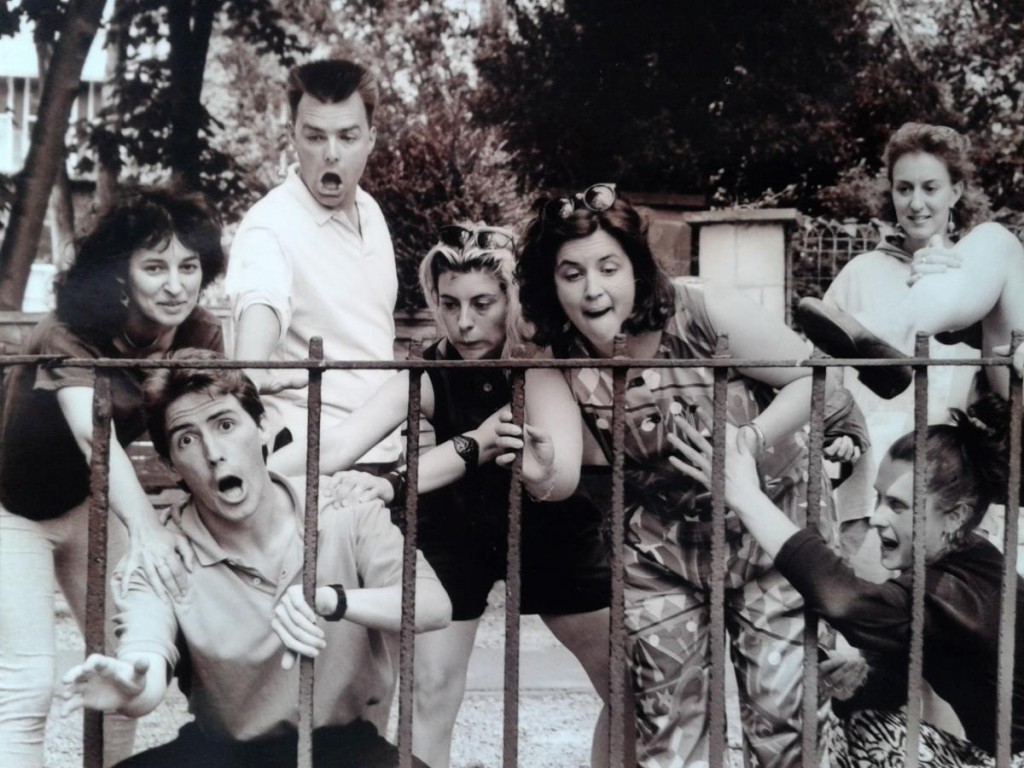Where’s the improvisation on TV and film?
Let’s trace a few strands of improvisational history.
The films (and plays) of Mike Leigh, such as Abigail’s Party, Nuts in May and Naked, are scripted entirely before they are filmed or played before an audience. Yet his method of script preparation famously requires a great deal of improvisation from the actors. Once cast by Leigh, they begin to evolve a character, prompted by his interview questions and perhaps drawing on people they know or observe.
Eventually Leigh invites characters to meet each other, to find out what happens when they connect. From these meetings, he writes the script, which he directs for filming, then edits. This can result in tremendous depth of character and a hyper-real quality to their encounters.
Ruth Jones and James Corden used a similar, if less elaborate process, in developing their hugely-successful series of Gavin and Stacey. They would pace around the room with each other, recording the dialogue on tape as each played a character.

Earlier, Rob Brydon and Julia Davis improvised all their characters for their 6-part series, Human Remains. They sequestered themselves in the seaside resort of Brighton for several weeks, then improvised with each other to prepare the six scripts, in each of which they play a different couple.
I trained Ruth, Rob and Julia in improvisational techniques while they were members of my impro theatre troupe More Fool Us. In his autobiography, Rob Brydon writes about the value of improvisation as a creative prompt, as well as a performance method.
Larry David has his own twist on freedom within structure for his Curb Your Enthusiasm series. Each scene has to advance the story in a planned fashion, and – with the cameras rolling – the performers improvise the dialogue.
I’m sure there are dozens of other great examples. Many classic British sit-coms were created and written by writing duos, and it seems more than plausible that they would each take a character and speak dialogue aloud before one of them would capture the results on type-writer, word-processor or camera. We can imagine Galton and Simpson improvising Steptoe and Son; Perry and Croft previewing Dad’s Army; Clement and LaFrenais’ work on the Likely Lads inspiring Grant and Naylor’s Red Dwarf and Mathew’s and Linehan’s Father Ted; not to mention how much fun it might have been to sit in the on scripting sessions for Cook and Moore, Fry and Laurie, or any pair of Pythons.
Perhaps it’s only the written artefact of the script, lifted above the ephemeral moments of dialogue creation, that has led to the historical neglect of the role of improvisation in the creation of these classics. Are we more easily impressed by product than process?
[insert_php]
if ( comments_open() || get_comments_number() )
comments_template( ”, true );[/insert_php]
Get free tips on how to develop confidence and creativity straight into your inbox.
Paul Jackson Associates Limited. A registered company in England and Wales.
Company Number 09564618. VAT Number GB 213 37981.
Registered Address 10 Greville House, Lower Road, Harrow on the Hill, Middlesex, HA2 0HB.
Postal Address 34a Clarence Road, St Albans, Hertfordshire, AL1 4NG
Telephone 01727 843 820
Mobile 07973 953 586
© 2009-2016 Paul Jackson Associates / The Improvisation Academy – All Rights Reserved



![DJI Systems - web design | marketing | admin systems | consulting - [ anglesey / wales ] DJI Systems - web design | marketing | admin systems | consulting - [ anglesey / wales ]](https://djisystems.com/banners/DJI_WebBanner_lt.png)
